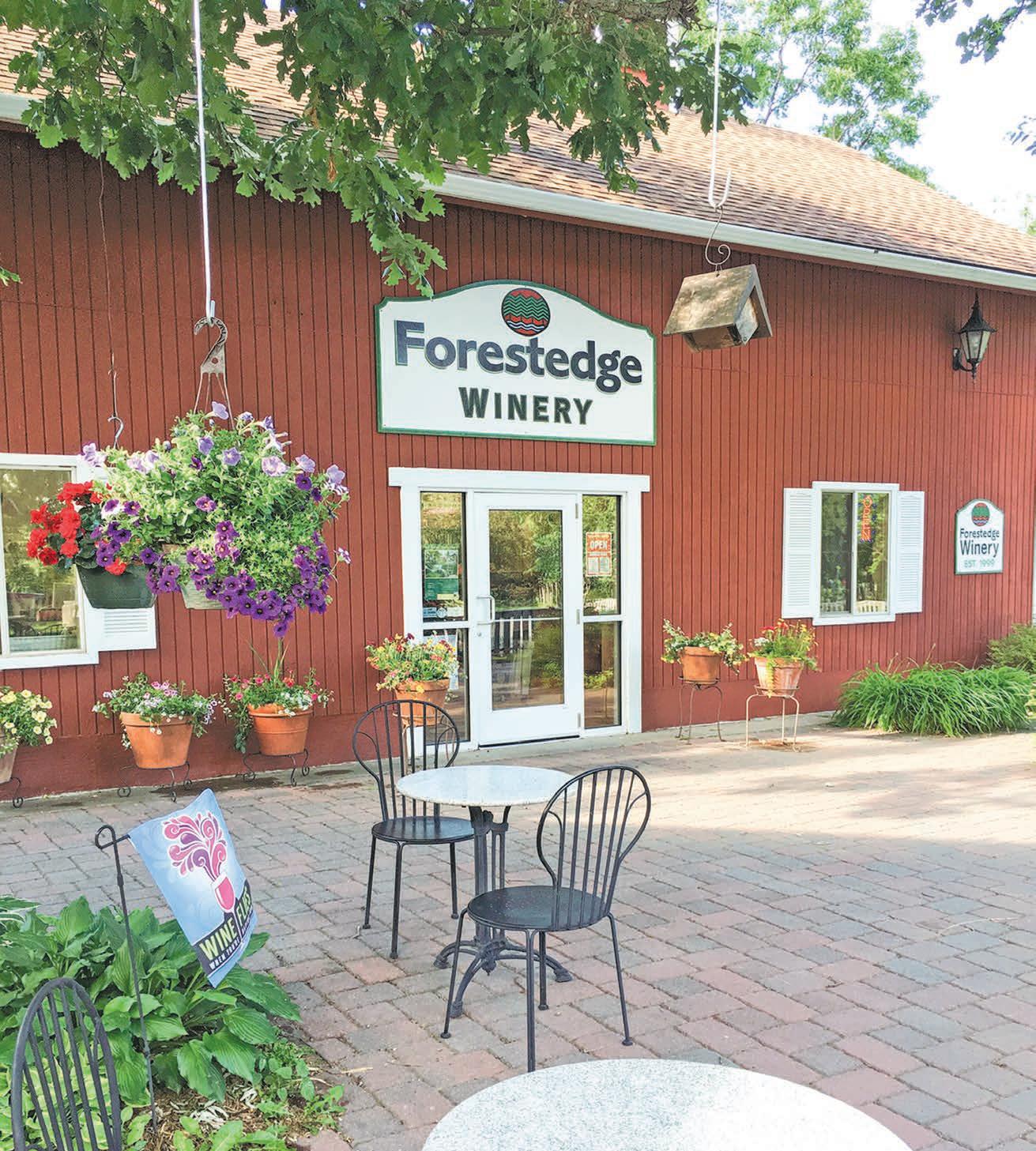




Acentury ago, stories are told of families arriving at the Park Rapids train station for a summer vacation, a driver with horse and buggy greeting the haggard guests. They had ridden hours, arriving from Minneapolis-St. Paul and out of state.
After a stop at the area mercantile establishment for some flour, sugar and other basic necessities, it was off to the cabin on the lake. Fishing. Swimming. Lounging on the beach. Card games. Catching fireflies. Watching squirrels skirmish. Picnics. Reading a good book.
Times may have changed. But the overall lure of vacation on the lake remains.
According to the Minnesota Department of Natural Resources, “Although water may seem abundant in Minnesota, the land of 10,000 lakes (there are actually 11,842 lakes of 10 acres or larger), water is a limited resource.
Throughout the world, clean, fresh water is increasingly scarce.”
The fresh water in Minnesota’s aquifers, lakes and rivers is “a legacy of retreating glaciers that shaped the landscape more than 10,000 years ago.”
Six percent of Minnesota is covered with water – more than any other state. Minnesota has more miles of shoreline than Hawaii, California and Florida combined.
In the heart of northern Minnesota lies one of the world’s greatest rivers, the Mississippi River. The Ojibwe word for the river is Messipi, meaning “big river.”
A raindrop falling in Lake Itasca arrives downstream at the Gulf of Mexico about 90 days later.
As you and your family connect with the north woods’ natural beauty, please remember to leave no trace. Let’s keep our beautiful lakes pristine, together.
680 of the Mississippi River’s 2,522 total miles flows through Minnesota – and it all begins in Hubbard County at Itasca State Park.


The name “Minnesota” comes from Dakota Indian words meaning “skytinted waters” or “skyblue waters.”
Minnesota has 90,000 miles of shorelines due to its abundance of lakes – that’s more than California, Florida and Hawaii combined.


Park Rapids calls itself the “Loon Capital of the U.S.A.”
The Legislature adopted the common loon as Minnesota’s state bird in 1961. A loon’s legs are near the rear of its body, enabling it to dive under water with great speed and agility.
Averaging about 9 pounds, the distinctive bird, with its black and white plumage, can attain speeds up to 60 miles per hour and dive as deep as 250 feet.
The loon earned its name from the old English word “lumme,” meaning clumsy one. Due to the bird’s inability to maneuver well on land, it’s a fitting description.
Fewbirds use sound to communicate in as many ways as loons do� Scientists have categorized common loon calls into four main types, each conveying a unique message
Hoot: A loon gives a hoot – a soft, short call – to let other loons know where it is or to ask another loon where it is� A parent might hoot to its chick, or one of a pair to another
Tremolo: The wavering tremolo call – sometimes likened to maniacal laughter – means a loon is excited or alarmed� Loons also use the tremolo when they fly over a lake to announce their presence to any loons there�
Yodel: Only male loons make this loud sound, which starts with three notes and ends with a couple of swinging phrases� They use it to defend their territory Each male has a “signature” yodel Some people have learned to recognize a specific loon by his yodel�
Wail: The high, haunting wail helps loons to figure out where they are relative to each other They call back and forth, using the location of the sound to move closer together�
Nothing symbolizes the beauty of northern Minnesota more than the haunting call of the loon, our state bird. Do your part to protect loons. Minnesota’s loon population is threatened by loss of breeding habitat, water contamination and direct human disturbance to shoreline nests.
When boating in open water, watch for loons and keep your distance – at least 150 feet. Give more distance if the loon calls or shows other signs of distress, like when it “dances” on the water surface.
It’s particularly important to stay away from nesting loons.
Never circle loons while jet skiing. This is harassment and subject to a fine from DNR.
Choose lead-free fishing tackle.
Don’t throw old fishing gear into the water or shore.
Properly dispose of unwanted lead tackle.
► Loons’ bones are thicker and heavier than the bones of many other birds. The extra weight helps loons stay underwater when they dive. It also makes it harder for them to fly.
► Loons sometimes dive 250 feet deep.
► They can swim 400 yards and stay underwater for up to five minutes to escape danger.
► Because their bodies are heavy relative to their wing size, loons need a 100to 600-foot runway in order to take off from a lake.
► Loons can fly more than 75 miles per hour.
► The red in the loon’s eye helps it to see underwater.
► Scientists think loons can live for 30 years or more.







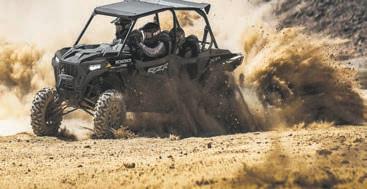




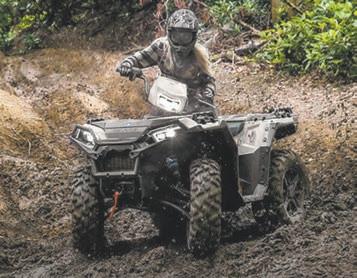










Note: Events are subject to change. Always check with the organizer before making plans. All events listed are in Park Rapids unless otherwise noted.
May
20: Sculpture Trail opens
26: Mary Ann Papanek-Miller and Pao Houa Her artist reception, Nemeth Art Center
27: Farmers Market opens
June
15: Noon Hour Concert, Calvary
Lutheran Church
15: 2nd Street Stage
17: Author Fest at American Legion
17: Dorset Boardwalk Art Fest
22: Noon Hour Concert, Calvary
Lutheran Church
22: 2nd Street Stage
23-25: Akeley Paul Bunyan Days
24: Water Ski Show, Halvorson Beach, Nevis
29: Noon Hour Concert, Calvary
Lutheran Church
29: 2nd Street Stage
30: Sounds of Spirit Lake, Menahga city beach
July
1-3: PRCA ProRodeo and Xtreme
Bulls Competition, Park Rapids
1: Brad Kahlhamer artist reception, Nemeth Art Center
4: Firecracker Footrace, Heartland Park
4: Fourth of July parade
4: Community Band pre-fireworks concert
4: Rotary Fourth of July fireworks
6: Noon Hour Concert, Calvary
Lutheran Church
6: 2nd Street Stage
7: Sounds of Spirit Lake, Menahga city beach
7-9: Menahga Midsummer Celebration
8: Water Ski Show, Halvorson Beach, Nevis
8: Nevis Bands & BBQ
13: Noon Hour Concert, Calvary
Lutheran Church
13: 2nd Street Stage
14: Sounds of Spirit Lake, Menahga city beach
15: CHI St Joseph’s Auxiliary
Garden Stroll
11-16: Hubbard County Fair, Shell
Prairie Agricultural Association
20: Noon Hour Concert, Calvary
Lutheran Church
20: 2nd Street Stage
21: Sounds of Spirit Lake, Menahga city beach
21-22: Nevis Muskie Days
22: Historical Society quilt show, Riverside United Methodist Church
27: Noon Hour Concert, Calvary
Lutheran Church
27: 2nd Street Stage
28: Sounds of Spirit Lake, Menahga city beach
28-Aug. 5: Northern Light Opera Company, “Little Shop of Horrors”
August
3: Noon Hour Concert, Calvary
Lutheran Church
3: 2nd Street Stage
4-5: Crazy Days, Park Rapids
5: Nevis city-wide garage sale
5: Water Ski Show, Halvorson Beach, Nevis
5-6: Antique Tractor & Engine Club
Field Days
6: Taste of Dorset
10: Noon Hour Concert, Calvary
Lutheran Church
10: Water Wars on Main Avenue
10: 2nd Street Stage
11-12: Northern Knights Run to the Rapids classic car show
12: Northwoods Triathlon, Nevis
12: Legends and Logging Days/ Backyard BBQ Challenge
17: Noon Hour Concert, Riverside United Methodist Church
17: 2nd Street Stage
18: Festival of Tables, CHI St Joseph’s Health Auxiliary
19-20: Art Fair at the Winery, Forestedge Winery, Laporte
24: Noon Hour Concert, Calvary Lutheran Church
26: Veterans Tribute Program, Howard Maninga’s home, Ponsford
28: Historical Society program on Itasca, Northwoods Bank
31: Noon Hour Concert, Calvary Lutheran Church
September
13: Historical Society feat Jean Cooney, Hubbard County Museum
23-24: Art Leap 2022
October
30: Historical Society feat Will Weaver, Northwoods Bank
31: Trick or Treat Park Rapids
November
24: Community Tree Lighting and Yuletide Sampler
No drive around northern Minnesota is complete without a visit to Akeley, the home of one of the biggest selfie stops in the state – everybody wants their picture taken with the legendary big man himself, Paul Bunyan.
Local lore has it that the giant lumberjack was born in Akeley, and the community honors their native son with the world’s largest Paul Bunyan statue. His huge hand outstretched, the 31-foot friendly behemoth has welcomed visitors for more than 25 years.

Located on the Lake Country Scenic Byway, 10 miles west of Walker, Akeley is a hard-to-miss destination for anyone traveling around the area. The little town of about 440 people offers an array of outdoor activities and attractions for visitors, including a city beach and campground, picnicking, fishing, and trails for hikers, snowmobilers, ATVs and more.
Minnesota is the only state to have an orchid as its state flower: the showy lady’s slipper.

It was adopted as the state flower in 1902. Found living in open fens, bogs, swamps, and damp woods where there is plenty of sun, lady’s slippers grow slowly, taking up to 16 years to produce their first flowers.
Lady’s slippers bloom in late June or early July. Under the right conditions, lady’s slippers can live for more than 50 years. A healthy showy lady’s slipper can produce a half million seeds in a single year.
The frilly, pink and white lady’s slipper can grow to a height of 4 feet – the tallest of the state’s nearly 50 native species of orchids.
Its scientific name, Cypripedium, means shoe of Venus.
Since 1925, it’s been illegal to pick this rare flower or uproot the plants. It’s state law.



















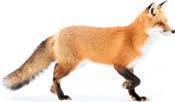














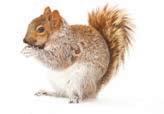










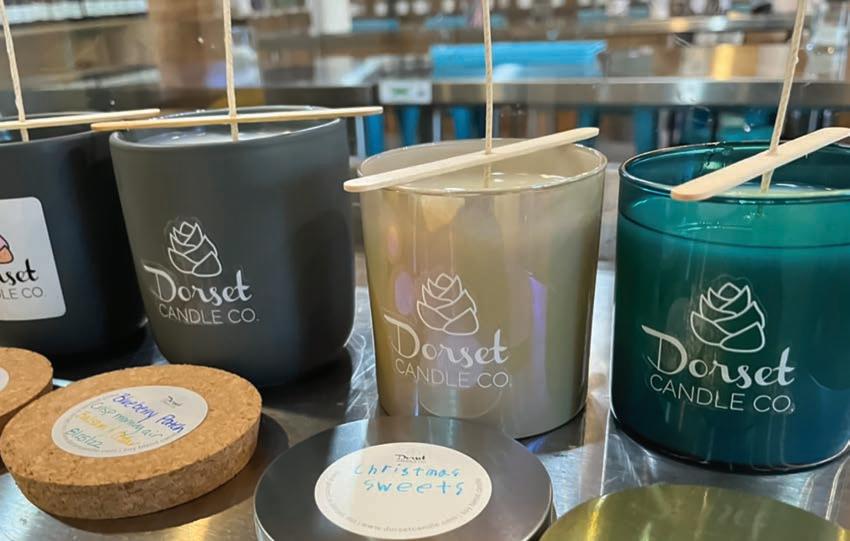
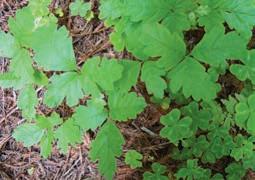
Contact with poison ivy, poison oak or poison sumac can cause red, swollen skin, blisters and severe itching, sometimes within hours.
Learning to identify and avoid these plants is the best treatment.
Poison ivy has a short, woody stem and three, solid green leaflets. It can grow as a vine or low shrub.
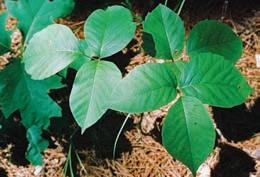
Like its ivy counterpart, poison oak leaves also cluster in sets of three. The edges of the solid green leaves, while reminiscent of an oak tree, are less dramatic. Poison oak is most often seen in shrub form, but it can also grow as a vine.
Poison sumac has oval leaflets with smooth edges arranged in groups of 7 to 13. The leaf stems are always red. The bark is gray and smooth. It’s usually found in swampy or boggy areas where it grows as small tree or tall shrub.

All parts of these plants contain a toxic, oily substance called urushiol (pronounced “you-ROOshee- ol”). The poison is absorbed by the skin almost immediately, although symptoms may appear 12 to 24 hours later.
Gently washing your skin with ordinary soap within five to 10 minutes after exposure may help avert a reaction.
Wash clothing and any other contaminated objects promptly with detergent or warm, soapy water.
Mild cases resolve on their own within a few weeks. Control itching with calamine lotion or hydrocortisone cream.
Oatmeal baths and cool compresses also might be helpful. Severe or widespread rashes should be seen by a doctor, especially if there’s a fever, blisters are oozing pus and the rash affects your face or genitals.
Barrier creams containing 5 percent bentoquatam are the only FDA approved, skin applied products proven to

MYTH: The rash is contagious
FACT: Rubbing the rashes won’t spread poison ivy to other parts of your body or to another person The blisters contain only body fluids You spread the rash only if urushiol oil has been left on your hands Urushiol oil is potent – only 1 nanogram (one billionth of a gram) is needed to cause rash�
MY TH: You can develop a rash simply by being near the plants� FACT: Direct contact is needed to release urushiol oil Contact may be between the plant and bare skin or the poison may travel on the fur of a dog, gardening gloves, camping equipment, clothing or other intermediary�
MYTH: Don’t worry about dead or dormant plants�
FACT: The plants are poisonous year round Urushiol oil stays active on ANY surface, including dead plants, for up to 5 years�
protect against or reduce the severity of the rash when applied at least 15 minutes prior to exposure.
8.
9. Slow cooked rare
11. What your kids do but can’t have.
15. Before your meal.

16. Jumbo this is an oxymoron.
Use the clues to fill in the words above. Words can go across or down. Letters are shared when the words intersect.






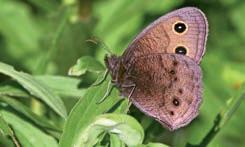


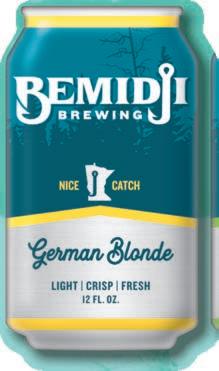

John Weber is a local butterfly and dragonfly enthusiast. Since 1997, Weber has been meticulously recording every dragonfly sighting. He’s counted butterflies since 1993.

These are the top 10 butterflies that Weber says you may encounter in Minnesota.

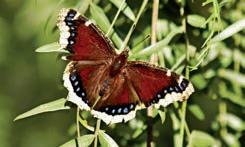









BASKET
BEACH
BOARDWALK
BREEZY
BRIGHT
COASTAL
CRASHING
FOAM
LAUGHTER
MARINE
OCEAN
RELAXATION
CLOUDY
DAMP
DEW POINT
DRIZZLE
GALOSHES
GUSTS
HUMIDITY
INDOORS
JACKET
OVERCAST
RIPTIDE
SAIL
SANDCASTLE
SANDY
SEAWEED
SUNGLASSES
SURFING
SWIMMING
SWIMSUIT
TAN
UMBRELLA
UNDERTOW
PROTECTION
PUDDLES
RAINFALL
SLIPPERY
SLUGGISH
SOGGY
UMBRELLA
VISIBILITY
WET
WINDY
FUN BY THE NUMBERS
Like puzzles? Then you’ll love sudoku. This mind-bending puzzle will have you hooked from the moment you square off, so sharpen your pencil and put your sudoku savvy to the test!
HERE’S HOW IT WORKS: Sudoku puzzles are formatted as a 9x9 grid, broken down into
nine 3x3 boxes. To solve a sudoku, the numbers 1 through 9 must fill each row, column and box. Each number can appear only once in each row, column and box. You can figure out the order in which the numbers will appear by using the numeric clues already provided in the boxes. The more numbers you name, the easier it gets to solve the puzzle!
FUN BY THE NUMBERS
Like puzzles? Then you’ll love sudoku. This mind-bending puzzle will have you hooked from the moment you square off, so sharpen your pencil and put your sudoku savvy to the test!
HERE’S HOW IT WORKS: Sudoku puzzles are formatted as a 9x9 grid, broken down into
nine 3x3 boxes. To solve a sudoku, the numbers 1 through 9 must fill each row, column and box. Each number can appear only once in each row, column and box. You can figure out the order in which the numbers will appear by using the numeric clues already provided in the boxes. The more numbers you name, the easier it gets to solve the puzzle!
CLUES
1. Flat tableland with steep edges
5. Where there’s __, there’s fire
10. Talked incessantly
12. Skill
14. Without shame
16. Where teens spend their days (abbr.)
18. Boxing’s GOAT
19. Used to anoint
20. Cluster cups
22. Footballer Newton
23. They make up a forest
25. Split pulses
26. Self
27. Post-office box
28. Test for high schoolers
30. Large, flightless bird
31. Expectorated
33. Falsehood
35. Prickly, scrambling shrub
37. French river
38. Told on
40. Hillside
41. Peyton’s little brother
42. Soviet Socialist Republic
44. Cathedral city in Cambridgeshire
45. Witness
48. Brews
50. Yellowish-brown
52. Arctic explorers, abbr.
53. Mexican agave
55. A type of “cast”
56. Encourage
57. Atomic #52
58. Relating to position north of south of equator
63. Gadget whose name you forget
65. Another recording
66. Small blisters
67. Dark brown or black
1. Licensed for Wall Street
2. “__ and flow”
3. A very large body of water
4. Accumulate on the surface of
5. Central cores of the stem
6. Angry
7. Ceramic jar
8. Scraped a car
9. __ route
10. Soviet labor camp system
11. Strong hostilities
13. Vitamin of the B complex
15. Go quickly
17. Toast
18. A team’s best pitcher
21. A Philly culinary specialty
23. Small child
24. Unhappy
27. Trims away
29. Characterized by crying eyes
32. Soft touch
34. American spy organization
35. A person’s chest
36. Came from behind to win
39. Fall back
40. Nellie __, journalist
43. Great places to kayak
44. Suffer patiently
46. Majestic bird
47. Electroencephalograph
49. Organic compound used as an antiseptic
51. Objects connected to the web (abbr.)
54. Ship as cargo
59. The bill in a restaurant
60. Upper-class young woman (abbr.)
61. Judge in OJ Simpson trial
62. One’s grandmother
64. Siberian river
CLUES ACROSS
1. In a place to sleep
5. Chemical compound (abbr.)
8. A way to fish
11. Classic Linklater film “__ and Confused”
13. Legume
14. Indonesian island
15. Smooth, creamy substance
16. Arctic
17. Wood sorrels
18. Defied
20. Cattle
21. Tableland
22. Honorably retired and retaining one’s title
25. Repossession
30. Danced
31. Adult males
32. A type of section
33. Type of Japanese animation
38. Satisfaction
41. Fit
43. “Ain’t No Sunshine” singer
45. Failure
47. Israeli city
49. French river
50. Cavalry-sword
55. Nocturnal S. American rodent
56. Liquefied natural gas
57. Afflicted
59. Electronic countercountermeasures
60. Popular HBO fantasy series (abbr.)
61. Spiritual leader of a Jewish congregation
62. Large body of water
63. __kosh, near Lake
Winnebago
64. Impudence
CLUES DOWN
1. Payroll firm
2. Unit of transmission
3. Rockers Better Than __
4. Bambi is one
5. Highest parts of something
6. Correct behavior
7. Batty
8. Cyprinid fishes
9. Expression of sorrow or pity
10. Site of the famous Leaning Tower
12. American rocker Snider
14. W. African language
19. Symbol to mark for removal
23. __ Squad
24. Resident
25. Federal savings bank
26. Paddle
27. Returned material authorization (abbr.)
28. One point south of due east
29. Winter melon
34. Last or greatest in an indefinitely large series
35. Anger
36. Central European river
37. First responders
39. Spanish noble
40. Persons with absence of skin pigment
41. Defunct airline
42. Small island (British)
44. The extent of something from beginning to end
45. Capital of Bangladesh
46. Dutch cheese
47. Imitates
48. A contest of speed
51. Swiss river
52. Prejudice
53. Actor Idris
54. UNLV’s are Runnin’
58. Criticize
SUN & SAND WORD SEARCH
RAINY WEATHER
SUDOKU PUZZLE #1
SUDOKU PUZZLE #2
SUDOKU PUZZLE #3
SUDOKU PUZZLE #4
SUDOKU PUZZLE #5
SUDOKU PUZZLE #6
SUDOKU PUZZLE #7
SUDOKU PUZZLE #8
CROSSWORD PUZZLE #1
CROSSWORD PUZZLE #2








Anglers who intend to release any of the fish they catch can boost the chances those fish will survive by following best practices for catch and release.
The Minnesota Department of Natural Resources advises to set the hook quickly to avoid hooking a fish in the stomach or gills.


Before handling the fish, wet your hands to prevent removal of the fish’s protective slime coating. If possible, unhook and release the fish while it is still in the water.
If a hook is deep in the fish, cut the line and leave the hook in the fish.
When holding the fish out of the water, support it with both hands using a firm, gentle grip. It is OK to measure the fish and take a photo; however, minimize the time the fish is out of the water. Anglers intending to release a fish should not place it on a stringer or in a live well.
To release a fish, hold it horizontally in the water by cradling it under its belly. If needed, revive the fish by slowly moving it forward and backward in the water until it swims away.
An alternative to this method is cupping your hand and splashing water into the fish’s mouth and out the gills while holding the fish stationary on the surface of the water.
Harvest a fish that can be legally kept if it is bleeding extensively or cannot right itself in the water.

The walleye became the official state fish in 1965.

The walleye is the most sought-after fish in Minnesota. Its thick, white fillets, handsome shape and coloring, and elusive nature make it the ultimate prize among anglers.
This popular game fish is found throughout Minnesota in lakes and rivers.

Walleyes are most at home in the large,
clear, cool lakes of Minnesota’s northern forests.
Their eyes are sensitive to light, so they go to deep, dark waters during the day and move to shallow areas at night. It gets its name from its glassy eyes, which make it look “walleyed” – an old-fashioned word for blind.

The walleye is the largest member of the perch family in the U.S. The state record for walleye weighed 17 pounds, 8 ounces.








A group of fourth graders in Mahtomedi, Minn. suggested the monarch as the state butterfly in 2000.



Monarch caterpillars appear to feed exclusively on milkweed, which grows throughout Minnesota.

The monarch is one of the few butterfly species that



migrates north and south like birds do. August is the best month to see them before they migrate south to Mexico. Approximately four generations of monarchs are born in Minnesota each summer and live roughly four weeks; the exception is the last generation of the season, which survives about six months. Each fall, members of this last generation migrate to Mexico and spend the winter in a state of semi-hibernation.

Hotdishes aren’t just for the winter months. On a rainy summer day they add a cozy ambience to the cabin. These recipes were submitted by local cooks to the Park Rapids Area Library.

EASY HASH
BROWN BAKE

1/4 cup vegetable oil
32-oz loose-pack, frozen, diced hash brown potatoes
1/2 cup chopped onion
10 75-oz can condensed cream of chicken soup

16 oz � light sour cream
2 cups diced cooked ham
8 oz American cheese, cubed
1/4 tsp black pepper
2 cups crushed corn flakes
1/4 cup melted butter
Preheat the oven to 350 degrees In a large ovenproof skillet, heat oil over medium-high heat � Cook potatoes in hot oil for 7 minutes Stir in onion and cook 3 minutes longer Stir in soup Add sour cream, ham, cheese, and pepper, stirring until well mixed Spoon into a
3-quart baking dish
In a medium bowl stir together corn flakes and butter; sprinkle over potato mixture Bake uncovered, for 45 to 50 minutes or until hot and bubbly Makes 12 servings
WILD RICE HOT DISH
1 lb hamburger
1 cup chopped celer y
1 large onion
1 cup wild rice, rinsed
2 cups cold water

1 can mushrooms
4 Tbsp soy sauce
1 can water chestnuts
1 can cream of mushroom soup
1 can chicken with rice soup
Brown the hamburger Add chopped celer y and onion and cook until tender
Mix with 1 cup raw wild rice that has been rinsed Add the remainder of ingredients Bake uncovered at 350 degrees for 1 hour and 15 minutes, stirring occasionally� Sprinkle with chow mein noodles the last half hour of baking if desired
2 lbs round beef
1 and 1/2 tsp salt
1 tsp pepper
1 Tbsp butter
1/2 lb� sliced fresh mushrooms
2 medium onions, chopped
2 garlic cloves, minced
1/3 cup all-purpose flour
1 can (10 ½ oz�) condensed beef consommé, undiluted
2 Tbsp tomato paste
1 and 1/2 cups sour cream
Hot cooked noodles
Directions
In a large skillet, cook beef, salt and pepper over
medium heat until no longer pink, breaking into crumbles, 6-8 minutes and drain Transfer meat to a 3- or 4-quart slow cooker
In the same skillet, heat butter over medium-high heat� Add mushrooms and onions Cook and stir until onions are tender and mushrooms have released their liquid and begin to brown, 6-8 minutes Add garlic and cook 1 minute longer Transfer to the slow cooker
In a small bowl, whisk together consommé, flour and tomato paste Pour over meat mixture and stir to combine Cook, covered, on low until thickened 4-6 hours Stir in sour cream� Cook, covered, until heated

through, 15-30 minutes longer Serve with noodles�
Layer the following, lightly salting and peppering each layer:
Sliced raw potatoes
Sliced carrots
1 lb� hamburger, crumbled
1 can green beans, drained
1 onion, chopped
1 small head of cabbage, chopped
2 cans stewed tomatoes
Bake covered at 250 degrees for 3 hours or cook in a crock pot on low for about 10 hours Serve with hot French bread
Mosquitos
► There are over 50 species of mosquito in Minnesota, and over 3,000 mosquito species worldwide.


► Mosquito eggs can survive for more than five years.

► One female mosquito can lay over 200 eggs at one time.
► Only female mosquitoes bite and take blood. Male mosquitoes feed only on plant nectar.
► Not all mosquito species bite people. Some prefer birds, orses or even frogs and turtles.
► All mosquitoes need water to complete their life cycle.
► A mosquito weighs about 2 to 2.5 milligrams.

► Mosquitoes can fly about 1 to 1.5 miles per hour.

► Mosquitoes find hosts by sight, by infrared radiation and by chemicals.
► Mosquitoes are the primary food for many birds and bats. One bat can eat 200 mosquitoes in one night and birds eat hundreds of mosquitoes every day. Without these mosquito predators, we would really have a mosquito problem!

► American dog and deer ticks are just two of 13 known tick species in Minnesota. Deer ticks are potential carriers of Lyme disease, human anaplasmosis and babesiosis.
► Ticks are blood-sucking members of the arachnid family.
► American dog ticks feed on a wide variety of mammals, including mice, voles, chipmunks, raccoons, squirrels, dogs, cats and people.
► Male American dog ticks feed briefly but do not become distended with blood. Once replete, female dog ticks detach from their host and drop into a leaf litter, where they can lay over 4,000 eggs before dying.
► Deer ticks, also known as black-legged ticks, live about two years. Adult


females are the size of a sesame seed.
► Lyme disease is named for Lyme, Conn., where scientists first discovered the tickborne infection in 1975. Removing and avoiding ticks
► Use tweezers to grasp an attached tick close to its mouth. Gently and slowly pull the tick straight outward. Wash the area and apply an antiseptic to the bite. Ticks must remain attached for one to two days to transmit Lyme disease bacteria.
► When hiking in wooded areas, wear light-colored clothing so ticks will be more visible. Use a repellent containing DEET or permethrin. After being outdoors, get out of your clothes immediately and do a complete body check.
Minnesota’s oldest state park – Itasca State Park – was established on April 20, 1891 to preserve the old growth pine trees that were in danger of being logged.
More than half a million people visit Itasca State Park every year to see the giant pines and wade across the headwaters of the Mississippi River State Water Trail.

Park Rapids is the undisputed Gateway to Itasca State Park and the south entrance is a 22-mile drive from Park Rapids north on Hwy. 71. The east entrance is only a couple miles farther north of the south entrance, and then another mile or so west on Hwy. 200 – you’ll find it easily at the junction of Hwy. 71 and Hwy. 200.
Itasca State Park encompasses Lake Itasca, the official source of the Mississippi River, and a scenic area of northern Minnesota that has remained relatively unchanged from its natural state.
Today, the park totals more than 32,000 acres and includes more than 100 lakes.
Stand under towering
pines at Preacher’s Grove. Visit the Itasca Indian Cemetery or Wegmann’s Cabin, landmarks of centuries gone by. Camp under the stars, or stay the night at the historic Douglas Lodge or cabins. Explore Wilderness Drive past the 2,000-acre Wilderness Sanctuary, one of Minnesota’s seven National Natural Landmarks.
The headwaters of the mighty Mississippi It’s hard to imagine America’s greatest
The Ojibwe refer to Norway, or red pines, as “grandfathers.”
When people think of the northwoods, they often think of the towering red pine.
In 1953, it became the official state tree of Minnesota in recognition of its important role in the state’s history, economy and environment. More than a century ago, loggers cut red pines and sent the logs downriver to build houses and businesses.
It’s called a red pine because of the pale red color of its
river as a burble, but if you venture to the Mississippi headwaters in Itasca State Park, you will be able to wade across Huck Finn’s favorite river as it starts its winding journey 2,552 miles to the Gulf of Mexico.
The Mary Gibbs Mississippi Headwaters Center offers outdoor displays, a restaurant and gift shop.
There are plenty of other activities to do at the park, including taking an excursion boat on Lake Itasca,
exploring along Wilderness Drive, biking or hiking along more than 30 miles of designated trails, fishing in one of the many lakes, observing the wild flowers in season as well as birding.
For more information about the park events and schedules, call Itasca State Park headquarters at 218699-7251, email itasca.statepark@state.mn.us or go to www.dnr.state.mn.us/state_ parks/itasca/index.html.
heartwood and the reddish tint of its bark.
Their needles are four to six inches long and grow in pairs. Red pines typically reach heights of 60 to nearly 150 feet. They can live to be about 400 years old.
Itasca State Park has one of the state’s largest stands of Norway pines –about 5,000 acres. The park once was home to the state’s tallest red pine, towering more than 120 feet tall and more than 300 years old. It was blown down during a severe windstorm in 2007.

Lakes country offers many opportunities to bike, run, walk, hike or inline skate with beautiful scenery.
An excellent place for running, biking, inline skating and walking. There are mile markers posted along the trail, which runs from Heartland Park in Park Rapids to Dorset (6.3 miles), Nevis (5.3 miles), Akeley (6.3 miles), Walker (9.4 miles), Wilkinson (12.5 miles) and ends two miles before Cass Lake (7.2 miles).
The hilly snowmobile trail alongside the Heartland Trail, with beautiful scenery and wildlife, is a great opportunity for horseback riding, mountain biking, running and walking.
The Paul Bunyan Trail is
115 miles long, extending from Crow Wing State Park to Lake Bemidji State Park. It’s the longest of Minnesota’s state trails and the longest continuously paved rail-trail in the country.
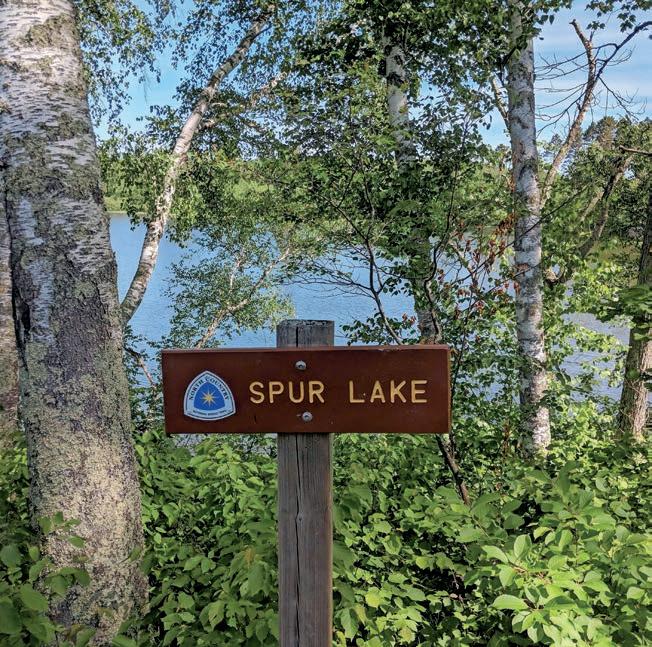


The trail is open year-round to non-motorized use and snowmobile in the winter. In Walker, the route intersects with the Heartland Trail.

The North Country National Scenic Trail is one of 11 National Scenic Trails in the U.S. and the only one in Minnesota.
The North Country Trail runs 4,600 miles from New York to North Dakota. Being open to foot traffic only, Minnesota’s footpaths hold unimpeded travel for hikers, berry pickers, hunters, geocachers, cross country skiers and snowshoers.
Short day hikes or overnight hikes are possible. Maps, events and suggested hikes are available at www.northcountrytrail.org

Anyone walking this trail is in for a treat as it meanders through forested hills

and valleys interspersed with rivers, lakes, and numerous wetlands.
Later in the summer, you can be rewarded by finding wild strawberries, raspberries, blackberries and blueberries along the trail.

Wild rice, called manoomin in the Ojibwe language, has been a staple food for Minnesota’s Native Americans for centuries.
Long before European settlers arrived in Minnesota, the Anishinaabe gathered wild rice to eat each year. Canoeing through grassy patches, they bent stalks over the canoe and gently tapped ripe seeds off the stems with special sticks. Many still harvest wild rice the traditional way.
It is an aquatic grass, not related to common rice.
Early in the summer, the plants bloom with tiny maroon and gold flowers. In August and September, their seeds mature into long, dark brown seeds.
Wild rice is commercially produced as a field crop on about 20,000 acres in Minnesota.
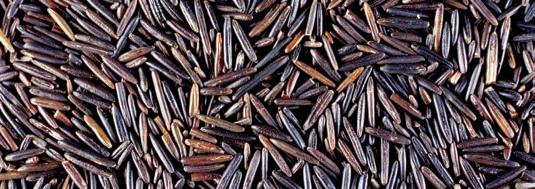
For many years, basically all of the wild rice produced in the world came from Minnesota, and most still does.
Wild rice grows naturally in the shallow waters of lakes in central and northern Minnesota
It was adopted as the official state grain in 1977.

Morchella esculenta, commonly known as the morel, sponge or honeycomb mushroom, became the official state mushroom in 1984.

The morel is considered one of the most highly prized and delicious of all edible mushrooms.


They are creamy tan or shades of brown and gray (darkening as they age), with pitted, spongy heads, smooth stems and hollow interiors. It’s usually 2 to 6 inches high.


It grows from early May to early June among leaves or wood ashes in open woods, along roadsides and in partially shaded meadowland. Good places to find morels are near dead elm, cottonwood trees and old apple orchards.

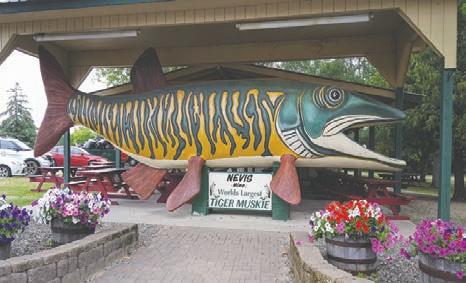




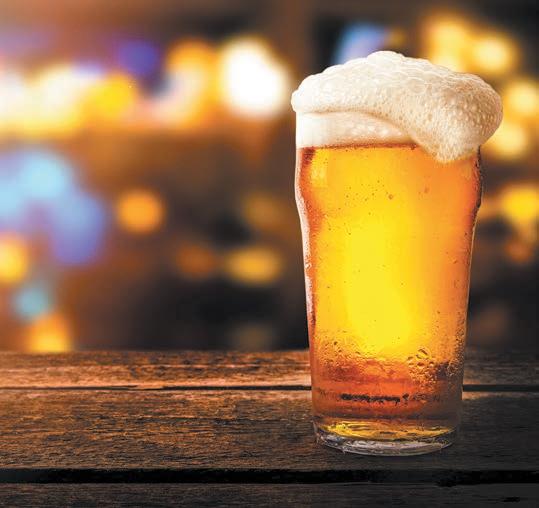



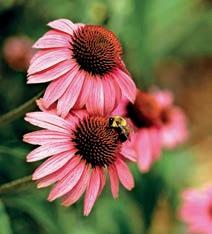


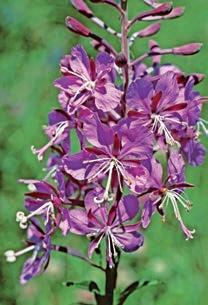
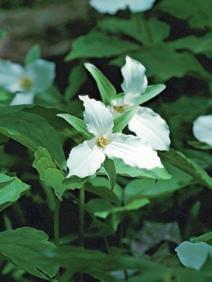

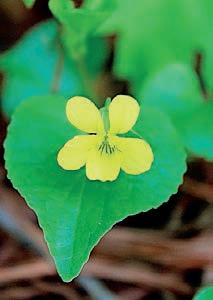

Wood duck
Size: About 20 inches, 1-1/2 pounds
Colorful wood ducks nest in hollow trees throughout Minnesota, near wooded river bottoms and potholes, flooded hardwood forests and lakes where nuts, berries, weed seeds, insects, and plants are available� Their willingness to use man-made nest boxes has helped bring wood ducks back from the brink of extinction
Identification: Broad wings and a long square tail Drakes have a blue-green crested head with white stripes, reddish-brown breast, buff sides and red eyes Hens are brown with white speckled breast, crested head, and white eye ring
Sounds: The hen’s “wee-e-e-e-k, wee-e-e-e-k” whistle is commonly heard�

Fun facts: Wood ducks, also called woodies, have a strong grip and can perch on branches�

Mallard
Size: About 24 inches, 2-1/2 to 3 pounds
Popular with both hunters and birdwatchers, the wideranging mallard is often seen in rural and urban wetlands, ponds, and lakes throughout Minnesota� They eat sedge seeds, grasses, knotweed, aquatic plants and insects, corn, grains, snails and wild rice
Identification: A large paddle duck with a blue patch on the wing Drakes have a distinctive glossy
Many people think they are helping ducks by tossing them some bread, but according to an article in the National Geographic Education Blog, bread offers little nutritional benefit to ducks� There is also the danger that ducks and other waterfowl will fill up on bread instead of other foods that could be more beneficial to them

Eating food tossed into the water may also keep ducklings from learning how to forage healthy food for themselves
In addition, ducks who eat a diet high in carbohydrates and protein diet may develop a wing deformity known as “angel wing” or “airplane wing ” This is a condition where the last joint on the wing is distorted, causing the end feathers to stick out sideways This prevents the bird from flying and the condition is incurable in adults
green head and white neck collar Hens are mostly brown Both sexes look like females in the summer
Sounds: Hens use a loud, long series of quacks Drakes have a lowpitched “wheat” call
Fun facts: Mallards swim with their tail held above the water, so they can spring directly into the air when threatened


Size: About 15 inches, one pound
This fast-flying paddle duck travels in flocks and breeds in prairie areas during the spring Sensitive to cold, they migrate south sooner than most ducks in Minnesota They like to eat aquatic insects, weed seeds and plants
A high-protein diet may also cause the wing bones to grow too fast, making the wing too heavy for the joint
Throwing bread in the water may also attract predators and grow mold or harmful algal blooms that make ducks and other water birds sick� Popcorn should also not be fed to ducks, swans or geese
Ducks are omnivores who eat a variety of plants, small fish and fish eggs, frogs, insects, algae, and aquatic plants
Foods listed on the National Geographic blog as being safe to feed ducks include peas, kale, lettuce, cabbage, cucumber, corn, and broccoli For a complete list of foods and a variety of other educational information, visit the National Geographic Education Blog�
Identification: A very small duck with a small black bill� Drakes have a white facial crescent, chestnut spots on the breast, and pale blue wing patches Hens are gray-brown with pale blue wing patches�
Sounds: A faint “tsee-tsee” call and a high-pitched quack�
Fun facts: Cinnamon teal look nearly identical to their bluewinged cousins until spring, when both species grow their distinctive breeding plumage�
Size: About 16 inches, 1-3/4 pounds
Ringnecked ducks breed mostly in Minnesota’s northwestern counties, preferring small bodies of water such as wooded potholes They eat only plant material,

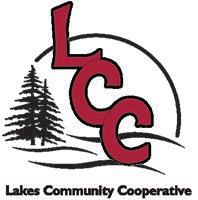

Identification: A small diving duck with bright yellow eyes, dark body and wings, a brown neck ring and a white ring on the front of its bill Drakes are mostly black Hens are dark brown
Sounds: Hens have a highpitched purr
Fun facts: The ring-necked duck is also known as a ringbill
Bufflehead

Size: About 14 inches and 13
ounces
The bufflehead is a beautiful little duck that nests in abandoned flicker holes in aspen parkland from extreme northwestern Minnesota to Saskatchewan They forage underwater for insects, plants, crustaceans, mollusks and fish eggs
Identification: This species has a distinctive head shape caused by a puff of feathers Drakes have white chest and flanks, iridescent green and purple face and a large white patch on the head Hens are brownish with a white patch on the cheek
Sounds: Drakes have a grating or chattering mating call and may squeal or growl� Hens have a guttural “cuk-cuk-cuk” and summon their ducklings with a low, throaty note
Fun facts: Also known as a spirit duck, the bufflehead is very monogamous and migrates punctually� Gathering in small groups, one duck acts as a sentry while others dive for food
Nine different turtle species live in Minnesota, but the snapping turtle and painted turtle are the most common in northern Minnesota.
The Minnesota Department of Natural Resources reports, “Fossil records show that turtles have been on our planet since the Triassic Period, over 220 million years ago. Although they have persisted through many tumultuous periods of Earth’s history – from glaciations to continental shifts – they are now disappearing from the planet at an alarming rate: Over 45% of turtle species are identified as threatened or endangered worldwide.”
In Minnesota, about 44% of turtle species are listed as
threatened or “species of special concern.”
The snapping turtle is Minnesota’s largest turtle. As an adult, its upper shell (carapace) averages 8-14 inches in length, and its weight ranges from 10-35 lbs.
Snapping turtles occur in virtually all aquatic habitats throughout the state, but prefer slow-moving, quiet waters with muddy bottoms and dense vegetation. They are common and often abundant in lakes, rivers, and marshes.
Their head is large, with large and powerful jaws, and their neck is long. The snapping turtle is usually docile in the water, but can be aggressive when it is on land, often lunging forward and striking out to “snap” at
its foe.
Painted turtles are medium-sized, oval turtles. The females grow to 10 inches in length, while the males only grow to 7 inches long.
The painted turtle’s carapace ranges from black to dark olive green. The carapace is smooth and shiny. The plastron varies from red to orange with differing amounts of black patterning.
Other species that may be seen in Hubbard County are the Blanding’s turtle and spiny softshell turtle


Other parts of Minnesota are home to the false map turtle, wood turtle, Ouachita turtle and northern map


The Minnesota Department of Natural Resources offers this advice:
• Leave them alone if they are not in danger
Turtles crossing roads in late-May and June are often moving to familiar nesting They know where they are going
• Don’t put yourself or others in danger Simply pulling off the road and turning on your hazard lights may alert other drivers to slow down
• If you decide to help the turtle cross the road, turn on your signal, slowly pull off the road, turn on your hazard lights and watch for approaching traffic
• Pick up the turtle by the back of its shell, NOT by the tail Picking up a turtle by the tail can damage their spinal cord
• Snapping turtles can be moved with a snow shovel� Other options include picking them up by their hind legs or having them bite down on a stick and carefully dragging them to safety
• Move the turtle in the direction it is heading� Do not relocate the turtle to a new area, even if the habitat seems unsuitable�
• Wash your hands after handling a turtle
Sunday Mass
Saturday: 5pm
Sunday: 8:30am
Check our website for Daily Mass times.


All of us areonaunique journey; we each face different challenges. But life is better together -sharing in both the struggles and celebrations. You’re welcome here, no matter where you are in your spiritual journey.

Ourvisionistotransformourhomes ,C ommunity ,a ndwo rld by purs ingGod, buildingcommunity ,a ndunleas hi ngcompas siononeneighborhood at at ime.
Ourvisionistotransformourhomes ,C ommunity ,a ndwo rld by purs ingGod, buildingcommunity ,a ndunleas hi ngcompas siononeneighborhood at at ime.
Ourvisionistotransformourhomes ,C ommunity ,a ndwo rld by purs ingGod, buildingcommunity ,a ndunleas hi ngcompas siononeneighborhood at at ime.
Families matter and we’ll do everything we can to support you and encourage your kids.

We believe in building into the next generation, as they have the power to change the future.



What better way to watch the stars than on your back with hands tucked behind your head?
Let me suggest you face south. That way you’re aligned with the meridian, an imaginary semi-circle that starts at the due south point of the southern horizon, passes directly overhead and then intersects the northern horizon at the due north point. Stars rise in the east (your left side) and set in the west (your right side).
Earth’s the best spaceship there ever was. You don’t have to suit up – at least not in the northern hemisphere – the atmospheric pressure is just right and the view is more expansive than staring out the window of a starship.
From many locations, brilliant Vega stands almost directly overhead as soon as it gets dark around 9-9:30 p.m. This diamond-white gem shines at magnitude 0 from a distance of 150 trillion miles, equal to 25 light years.
Vega stands in such contrast to the constellation it heads up, Lyra the Harp.
All five stars that scrunch together to make the tiny harp or lyre are 4th magnitude and faint.
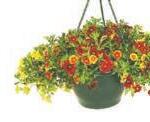





Cygnus the Swan, also called the Northern Cross, lights up the sky about two fists to the left or east of Lyra. Its brightest star is Deneb at the top of the Cross. At the foot is a dimmer star named Albireo, one of summer’s most beautiful double stars. You can’t split with the naked eye but a 10x pair of binoculars held rock-steady can do.
Near the bottom of what you can see while on your back and four fists below Deneb you’ll spy Altair, the brightest star in Aquila the Eagle and third member of the Summer Triangle, an asterism of three bright stars that includes Deneb and Vega. A fist and a half above and to the left (east) of Altair is another faint group of stars shaped like a diamond with a tail. That’s Delphinus the


Dolphin frozen in mid-leap.
If you now return to Vega and look up as far as you can, you’ll see a trapezoid of stars that outlines the head of Draco the Dragon. The faintest star in the pattern is a sweet double star in any pair of binoculars called Nu Draconis. It’s an “equal pair” — two stars of matching brightness and color.

“Astro” Bob King is a freelance writer for the Duluth News Tribune Read more of his work at duluthnewstribune�com/astrobob�


Handwoven


